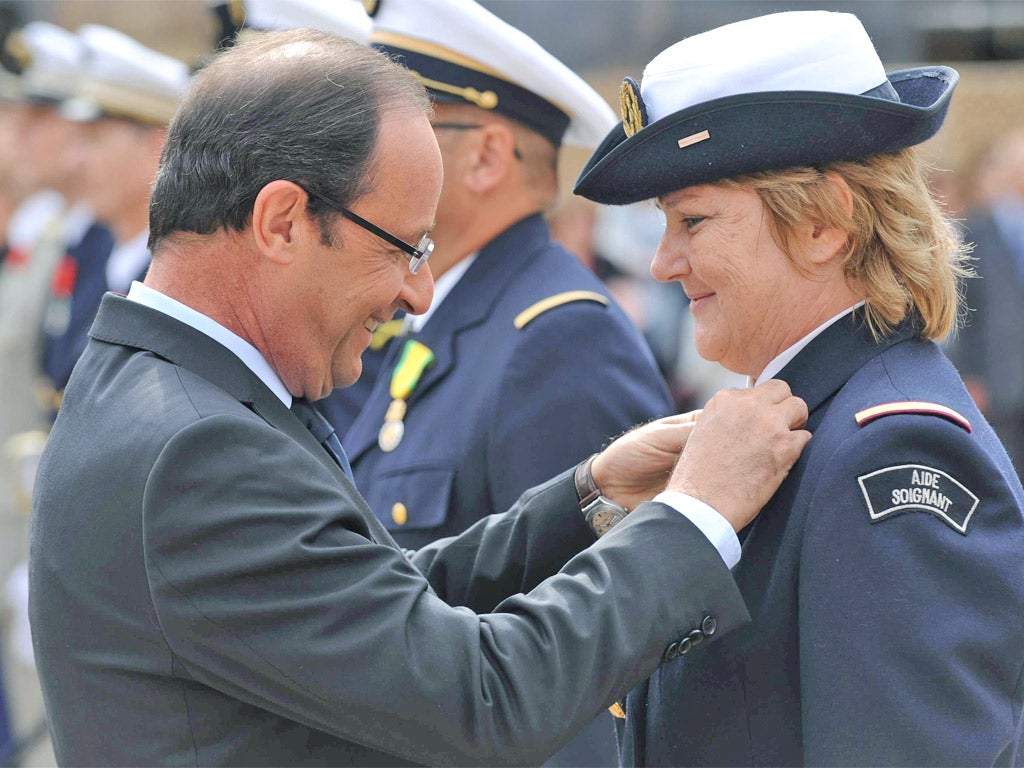French prime minister vows to cut budget deficit in five years without draconian public spending cuts

French President François Hollande enjoyed a moment of light relief at a military ceremony in the Hôtel des Invalides in Paris yesterday as his Prime Minister tended to the serious matter of how the nation will attempt to plug the €40bn black hole in its finances over the next 18 months.
Despite gloomy warnings from the country’s official financial watchdog, Jean-Marc Ayrault said that increased taxation on the wealthy and big business, plus a partial freeze on state employment, would be sufficient to bring French public finances under control.
In his first “discours de politique générale" – the French equivalent of the Queen’s Speech in Britain – Mr Ayrault used the word “austerity” only to reject it. He told the left-dominated, national assembly elected last month that the watchwords of his government would be “fairness”, “reconstruction” and “discipline”.
To the surprise of some commentators – and the frank disbelief of others – Mr Ayrault said that an official audit this week showing a €40bn black hole in French finances over the next 18 months was “no surprise”. He said that President François Hollande knew that growth would be lower, and public finances worse, than the previous centre-right government had predicted.
The five year programme that Mr Ayrault outlined to parliament was therefore little different from the promises, and vague warnings of cuts, given by Mr Hollande during his election campaign. Income tax on the rich will be increased, with a new 45 per cent band and a 75 per cent marginal rate on all earnings over €1m. Tax breaks for the wealthy and large businesses will be abolished.
An increase in VAT on some manufactured goods, planned by the Sarkozy government, will be scrapped. The hiring of state employees will be banned, except in “priority” areas such as education. Although Mr Ayrault made no specific reference to it in his speech, he has also indicated that the “total cost” of civil service salaries will be frozen.
Despite forecasts to the contrary, there will be no “turning of the screw”, Mr Ayrault said. “I demand seriousness. I demand fiscal responsbiility. But I refuse austerity.”
The new French government has reduced its predecessor’s official predictions for economic growth – in line with independent forecasts – to 0.3 per cent this year and 1.2 per cent in 2013. Nonetheless, Mr Ayrault insisted that his tax and spending plans would allow the state deficit to be reduced – to meet European Union guidelines - to three per cent next year and to zero by 2017.
To those on the Left who believe a left-wing government should ignore deficits and debts, Mr Ayrault pointed out that the accumulated French state debt was now nearing 90 per cent of the country’s annual income or GDP. “An indebted France is not an independent France but a dependent France,” he said.
The prime minister said that, despite the gloomy fiscal situation, his government would go ahead with Mr Hollande’s promise to create 60,000 teaching jobs in five years. It would also summon conferences on education, employment and the environment and produce a report in the next few days on rolling back, the “de-industrialisation” of France.
Join our commenting forum
Join thought-provoking conversations, follow other Independent readers and see their replies
Comments